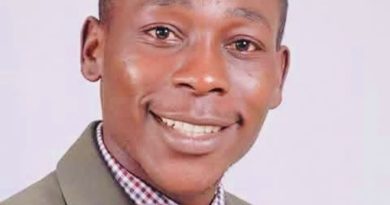Mnangagwa Cancels UN Trip Amid Speculation of Internal Coup Threats
President Emmerson Mnangagwa has abruptly cancelled his scheduled trip to New York for the United Nations General Assembly, citing serious security concerns linked to an intensifying power struggle within Zanu PF. This dramatic move underscores growing fears of a coup as the ruling party’s fierce succession battles spiral into open confrontation.
Security sources reveal that the Central Intelligence Organisation (CIO) advised President Mnangagwa against travelling, warning that his closest allies could face arrest in his absence and that departing the country might expose his camp to crippling internal attacks within both the party and the state security apparatus. These warnings have heightened speculation that President Mnangagwa is confronting more than political rivalry — but a genuine threat to his grip on power.
The backdrop to President Mnangagwa ’s decision is a deepening rift with Vice-President Constantino Chiwenga. Chiwenga recently handed party leaders a damning anti-corruption dossier alleging that President Mnangagwa ’s allies looted billions of dollars, with particular emphasis on businessman Kudakwashe Tagwirei — widely regarded as Mnangagwa’s preferred successor. The dossier has reverberated through Zanu PF’s top structures, intensifying mistrust and factional tensions.
In a swift and decisive response to what is seen as a growing threat, President Mnangagwa moved to consolidate his control. The president fired Zanu PF’s secretary-general, Obert Mpofu — a long-standing ally of Chiwenga — replacing him with Jacob Mudenda, the Speaker of Parliament and a trusted Mnangagwa loyalist. Mpofu was reassigned to the relatively marginal post of Secretary for ICT, a demotion interpreted by political analysts as a deliberate strike to weaken Chiwenga’s power base.
The removal of Mpofu is not an isolated incident but part of a broader political reshuffle designed to reshape Zanu PF’s leadership structure in President Mnangagwa ’s favour. This purge reflects the escalating nature of the rivalry between Mnangagwa and Chiwenga. Once united in the 2017 coup that ended Robert Mugabe’s rule, the two are now bitter opponents, each maneuvering to position themselves and their allies for eventual control of the state. For Chiwenga, the sidelining of his loyalists represents both a personal affront and a political humiliation.
Zanu PF spokesperson Christopher Mutsvangwa confirmed that the changes to the Politburo are far-reaching, further entrenching Mnangagwa’s influence:
Jacob Mudenda, formerly Treasurer-General, elevated to Secretary-General, replacing Mpofu and gaining control over the party’s administrative core.
Patrick Chinamasa, a staunch Mnangagwa ally, moved from Secretary for Legal Affairs to Treasurer-General, taking control of party finances.
Ziyambi Ziyambi, previously Secretary for ICT, appointed Secretary for Legal Affairs, giving him a strategic role in managing the party’s looming legal and political battles.
These changes strategically place Mnangagwa’s allies in positions of power while isolating Chiwenga’s camp. But they also stir memories of the factional chaos of 2017, when Mnangagwa himself was brought to power through a military intervention led by Chiwenga after Mugabe sought to purge him. Now, with the roles reversed, the possibility of military involvement in the current political struggle is a chilling prospect.
Analysts warn that Mnangagwa’s manoeuvres, while effective in weakening Chiwenga in the short term, carry significant risks. The demotion of Mpofu — a prominent political figure in Matabeleland — could alienate influential regional structures. Continued sidelining of military-linked figures may provoke resistance from the armed forces, potentially escalating tensions into an open political crisis.
The succession battle — once quietly discussed behind closed doors — has now entered the public arena, with both camps making decisive moves to consolidate power. For Mnangagwa, who is in his eighties, securing his legacy and ensuring a chosen successor is central to his political strategy. For Chiwenga, the dossier and the purges represent a last stand against what he sees as the monopolisation of power by President Mnangagwa ’s inner circle.
This unfolding power struggle carries implications not just for Zanu PF but for Zimbabwe as a whole. A destabilised ruling party could lead to political uncertainty, affect economic confidence, and further erode trust in governance. Analysts caution that the stakes are high, and the next moves in this succession battle could define the country’s political future.
As President Mnangagwa stays home instead of heading to the UN, the message is clear: he believes the real battleground is not in New York but inside Zanu PF itself. The cancellation of his trip is a stark reminder that the fight for succession is no longer a distant possibility but a present crisis — one that may yet reshape Zimbabwe’s political landscape.




